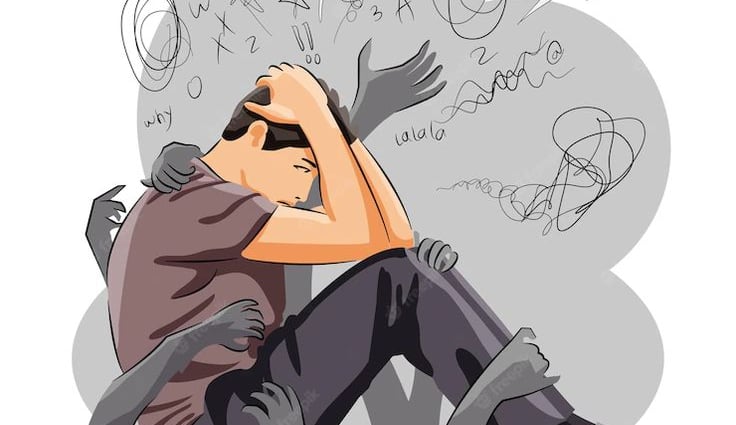Understanding Depression: Recognizing the Signs and Seeking Support
Learn about depression, its causes, symptoms, and how to differentiate normal sadness from clinical depression. Discover coping strategies and when to seek professional help for managing depression effectively.
MENTAL HEALTH ISSUES
9/27/20244 min read

Depression is a term often misunderstood, used casually in conversations, yet it is a profound mental health condition that goes far beyond momentary sadness or disappointment. It affects how a person feels, thinks, and handles daily activities, often making it difficult to function normally. This article aims to educate you about what depression truly is, how it develops, the symptoms of normal sadness versus clinical depression, and how to cope with it. We will also explore when it’s time to seek professional help.
What is Depression?
Depression, also known as Major Depressive Disorder (MDD), is a common but serious mood disorder that affects a person’s emotional, physical, and cognitive well-being. It involves more than just sadness or temporary feelings of despair—it is a persistent and pervasive condition that disrupts a person’s ability to experience joy, motivation, and interest in everyday activities.
Depression affects approximately 264 million people worldwide, according to the World Health Organization. It is a leading cause of disability, and if left untreated, it can severely impact quality of life and even lead to suicide.
How Does Depression Develop?
Depression can result from a combination of factors:
1. Biological Factors: Genetics play a significant role in depression. If you have a family history of depression, you may be more predisposed to experiencing it. Imbalances in neurotransmitters, like serotonin and dopamine, can also contribute to depressive symptoms.
2. Psychological Factors: Negative thought patterns, unresolved trauma, or past experiences of loss, neglect, or abuse can make someone more vulnerable to depression. Psychological factors like perfectionism, low self-esteem, and chronic stress can exacerbate these feelings.
3. Environmental Factors: Chronic stressors such as financial difficulties, relationship conflicts, job loss, or illness can contribute to the development of depression. Additionally, major life transitions such as bereavement or moving can trigger depressive episodes.
Symptoms of Normal Sadness vs. Depression
It’s important to understand the difference between normal sadness and clinical depression.
Normal Sadness is a natural emotional response to life events. It is usually temporary, situation-specific, and passes with time or positive experiences.
Symptoms of Normal Sadness:
Feeling sad or down for a few days, especially after a life event.
Occasional feelings of disappointment, frustration, or hopelessness.
Maintaining interest in most activities despite feeling sad.
Feeling better over time or after positive events.
Depression, on the other hand, is persistent, often lasting weeks, months, or even years. It affects various aspects of a person’s life, including sleep, appetite, energy levels, and interest in activities they once enjoyed. It isn’t something that fades with time alone.
Symptoms of Clinical Depression
When sadness becomes depression, it presents with a cluster of symptoms that persist for at least two weeks:
Persistent Sadness: Feeling sad or empty for most of the day, almost every day.
Loss of Interest or Pleasure: A lack of interest in activities that were once enjoyable, including hobbies, socializing, or even daily tasks.
Changes in Sleep Patterns: Insomnia or excessive sleeping (hypersomnia).
Fatigue and Loss of Energy: Feeling exhausted, even after adequate rest.
Changes in Appetite: Significant weight loss or gain due to changes in eating habits.
Feelings of Worthlessness or Guilt: Harsh self-criticism or excessive guilt over minor or imagined issues.
Difficulty Concentrating: Trouble focusing, making decisions, or remembering things.
Physical Symptoms: Unexplained aches, pains, or digestive problems without a clear physical cause.
Thoughts of Death or Suicide: Frequent thoughts about death, dying, or suicide, or making plans to harm oneself.
How to Cope with Depression in Daily Life
While clinical depression often requires professional intervention, there are some simple strategies that may help individuals cope with depressive symptoms in their daily lives:
1. Stay Connected: Isolation can worsen depression. Reach out to trusted friends, family, or a support group. Even small social interactions can boost mood and create a sense of belonging.
2. Exercise Regularly: Physical activity boosts the production of endorphins, which help improve mood. Even light activities like walking or yoga can have significant benefits.
3. Create a Routine: Depression often disrupts daily routines, making it hard to focus or stay motivated. Creating a simple daily schedule can help bring structure and a sense of accomplishment.
4. Focus on Self-Care: Take time to engage in activities that nurture your mental and physical health, such as mindfulness meditation, journaling, or even a relaxing bath.
5. Challenge Negative Thoughts: Cognitive distortions often accompany depression, leading to a skewed view of reality. Try to identify and challenge negative thinking patterns with more balanced, realistic thoughts.
6. Eat a Balanced Diet: Certain nutrients, like omega-3 fatty acids, folic acid, and vitamin D, have been shown to support brain function. Avoid excessive sugar and processed foods, as they can lead to mood fluctuations.
7. Limit Alcohol and Stimulants: Alcohol and stimulants like caffeine can exacerbate depressive symptoms. Try reducing or avoiding them entirely.
When Should You See a Therapist?
While self-help strategies can be effective for mild depression, professional treatment is crucial for moderate to severe cases. You should consider seeing a therapist if:
Your depression is persistent and interfering with your ability to function at work, school, or home.
You experience thoughts of self-harm or suicide.
You notice a significant change in your sleeping or eating habits.
You are unable to manage your symptoms with self-care strategies.
Your relationships are being impacted by your mood or behavior.
A therapist can provide a range of evidence-based treatments, such as Cognitive Behavioral Therapy (CBT), Interpersonal Therapy (IPT), or Psychodynamic Therapy, to help you understand and manage your depression. In some cases, medication may also be prescribed to regulate brain chemistry.
Conclusion: Seek Help and Support for Depression
Depression is a serious mental health condition that requires care, attention, and treatment. While it can feel overwhelming, understanding the nature of depression and adopting coping strategies can help manage symptoms. If your depression is affecting your daily life or relationships, seeking professional help is essential. Therapists and mental health professionals can provide the support, guidance, and treatments needed to recover and regain control over your emotional well-being.
Remember, you don’t have to face depression alone—help is available.


